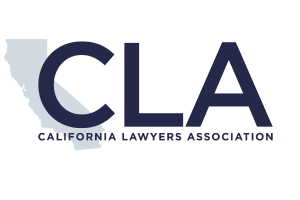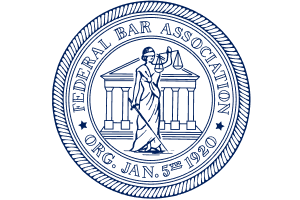Getting Results
Discharge of Income Tax, Interest & Penalties in Tax Bankruptcy
A. What Is a Tax Bankruptcy?
Whenever bankruptcy is considered to deal with IRS income tax debt, it is important to understand the nature and type of the IRS tax debt involved, the status of the IRS tax debt within the infrastructure of the Internal Revenue Service, and what actions have been taken by the IRS and the taxpayer with respect to each IRS tax debt.
Although the primary focus herein will be the tax bankruptcy discharge of IRS income taxes, generally, the same tax bankruptcy rules apply to FTB State income taxes. However, instances where California State income taxes are treated differently are noted throughout this guide on how to get rid of income taxes via bankruptcy tax discharge.
- Priority Income Tax is Not Discharged in Bankruptcy – Recognizing priority tax status afforded to certain IRS taxes under 11 USC §507 is very important. In a chapter 7 case involving an individual, priority taxes will not be discharged and will survive the tax bankruptcy filing.
B. Can You Get Rid of Income Taxes in Bankruptcy?
Although a thorough review of taxpayer’s IRS tax file should be analyzed before filing a tax bankruptcy case, people or businesses that owe taxes may be able to get rid of taxes if the income taxes at issue are not claimed to be secured or priority taxes by the IRS or FTB. In the context of trying to resolve tax debts, tax bankruptcy can be a viable legal option to eliminate IRS or FTB tax debt along with other collection alternatives and offer in compromise.
So what are priority taxes and how does the IRS categorize which taxes should be given status as secured tax, priority tax or general unsecured tax in a tax bankruptcy case?
- Income Tax Given Priority Tax Status – The Bankruptcy Code excepts from discharge under Chapters 7 and 11 unsecured IRS income taxes which fall within certain criteria enumerated under 11 USC §507(a)(8). Thus, if the tax debt falls within the priority tax classification as set forth in that section it will not be discharged through the tax bankruptcy case.
- Important Note: The Bankruptcy Code fails to make any distinction between IRS- Federal, State (California FTB) or local taxes in describing what constitutes a priority tax debt claim.
- Priority Taxes under 11 USC §507(a)(8) – Under this provision, IRS income taxes are entitled to priority status on three independent bases, so that if the tax debt claim falls within any one of these three categories the tax debt claim is afforded priority status and, hence, excepted from bankruptcy tax discharge.
- Where the tax bankruptcy petition is filed within three years of the due date of the tax return, the IRS taxes are entitled to priority and is not dischargeable in a tax bankruptcy case. In this provision, the controlling date is the due date of the tax return, and the date the IRS tax return was actually filed is of less importance. 11 USC §507(a)(8)(A)(i). The due date for a tax return, including any extension periods, is the key factor in applying the three year rule in tax bankruptcy cases under Chapter 7, 11 or 13.
- Where the tax bankruptcy petition is filed in 240 days of the date of assessment of the tax by IRS, or, where the tax debtor submitted an offer-in- compromise, within 240 days of the assessment date plus the period during which the offer-in-compromise was pending, plus 30 days, and any time during which as stay of proceedings against tax collection was in effect during 240 day period plus 90 days, the taxes are excepted from discharge. 11 USC §507 (a)(8)(A) (ii) . This 240 day plus rule for assessment requires thorough time line review of each IRS tax assessment.
- Determining Dates of Tax Assessment
- IRS Income Tax – A tax assessment is not defined in the Bankruptcy Code. In general, it refers to the determination under tax law by the taxing authority of the amount of the tax. IRC §6201 authorizes the Secretary to make tax assessments of all taxes. Under IRC §6203, an assessment is made by recording the liability of the taxpayer in the Office of the Secretary. This IRS Code section provides that a certified copy of the record of assessment (Form 23-C) is available to the taxpayer or his tax attorney.
- State Tax – Each state follows different procedures regarding the assessment of any tax. Thus, it is not always clear on what date the assessment was made at the state level. In California, the date of assessment is the date that the Notice of Proposed Additional Tax becomes final, which is 60 days following the date of the notice. If a Protest is filed in response to a Notice of Proposed Additional Tax, the date of assessment is then 30 days following the Notice of Action issued by the Franchise Tax Board. It is of great importance to determine when a tax assessment occurs by securing some type of certified tax records or transcript and reviewing statutory and case law in each jurisdiction.
- Capital Gains Tax – In certain tax cases, proper pre-bankruptcy planning may allow the tax debtor to either discharge the tax attributable to a certain capital gain business transaction in tax bankruptcy or, alternatively, allow planned foreclosure to occur in tax bankruptcy case so that the resulting capital gains tax may not be taxable or assessable to the tax debtor.
- Determining Dates of Tax Assessment
- Where the IRS tax remains assessable and the income tax relates to either a non-filed tax return or a delinquent tax return filed within two years of the filing of the tax bankruptcy petition, or relates to a fraudulent tax return, the tax is excepted from discharge. 11 USC 507 (a)(8)(A)(iii).
C. Important Note for California Taxpayers filing Tax Bankruptcy
FTB State Adjustments: States compute their tax liability on the basis of the information provided on the IRS tax return with special additions and subtractions thereto. Accordingly, any change by the IRS to the Federal income tax return will necessarily occasion a change to the State FTB tax return. In fact, Congress and various states, including California FTB, have exchange of information agreements in an effort to monitor this system of adjustments. California Revenue and Taxation Code §18622 provides that if a California taxpayer fails to report a Federal adjustment(s) to the State of California within 90 days of the date of the IRS tax assessment then the California taxpayer revives the four year statute of limitations; thus, it is important to coordinate the timing of all assessments prior to any tax bankruptcy filing.
IRS & FTB Tax Audits & Tax Amendment Reporting Requirements for California Taxpayers in Tax Bankruptcy:
Provisions concerning income tax reporting of IRS audits or changes or corrections were amended by the California state Legislature over the years. Former California FTB Tax Legislation Sections 18451, 18586.2, 18586.3 and 19053.6 of the California Revenue and Taxation Code and the updated sections found in 18622-19059 extend the periods of time within which the FTB taxpayer must notify the California Franchise Tax Board of a change or correction to the taxpayers Federal IRS Income Tax Return. This California FTB tax legislation also amended the period of time in which a taxpayer must file an amended State income tax return with FTB and within which the Franchise Tax Board may issue a tax deficiency assessment on the basis of the Federal IRS changes, audits or tax corrections.
Under former CRTC 18451 and updated CRTC 18622 the California FTB taxpayer must report the changes or corrections within six (6) months after the final federal IRS tax determination as a result of tax audit or other tax examination procedures. Previously, the law allowed a taxpayer only ninety (90) days in which to report the changes or corrections.
Under former CRTC Section 18586.2 and updated CRTC section 19059(a), if the California FTB taxpayer fails to report a Federal IRS tax change or correction, a Notice of Proposed Assessment may be mailed to the taxpayer at any time after the change or correction is reported to the Federal Government. Previously the Franchise Tax Board could send a Notice of Proposed Assessment for a period of up to four (4) years if the taxpayer failed to report a federal change or correction that affected the state income tax return.
Former CRTC Section 18586.3 and updated CRTC section 19059(b) provides that if a taxpayer does report a change or correction to the Franchise Tax Board or files an amended state return within the prescribed period of time a Notice of Proposed Assessment may be mailed to the taxpayer within two (2) years. Previously the Franchise Tax Board was limited to a period of six (6) months in which to issue a Notice of Proposed Assessment to the taxpayer.





















